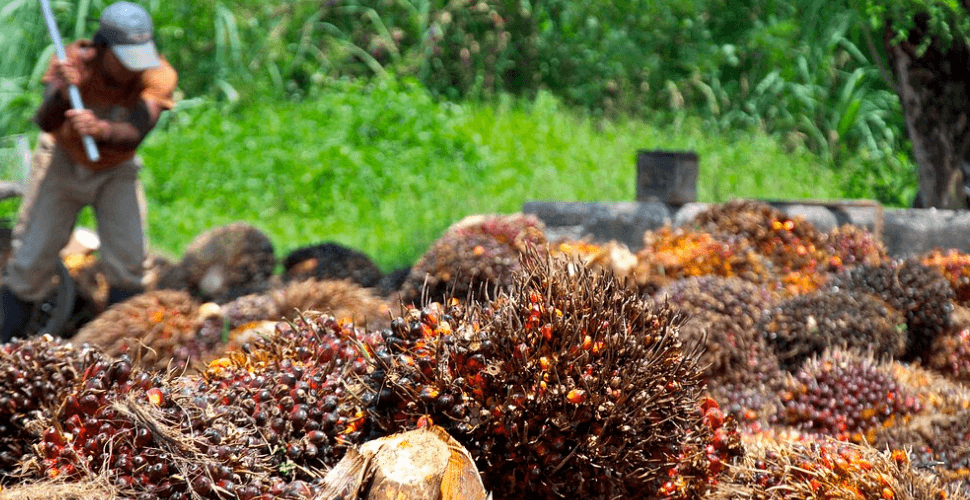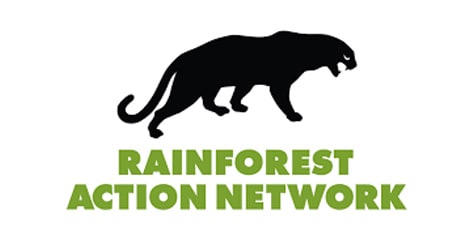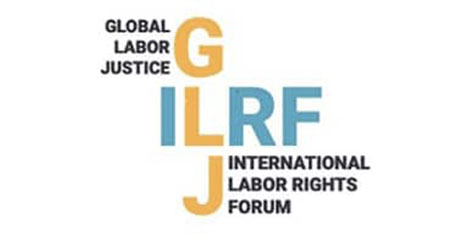Did you know that there is a high risk that palm oil linked to forced labor and environmental destruction could end up on US supermarket shelves?
But consumers don’t have to accept this as business as usual — we can fight back.
If we act now, we can help block imports of tainted goods and put pressure on exploitative companies to clean up their act and protect workers.
Vast stretches of the Malaysian rainforest have been destroyed for palm oil plantations linked to forced labor. Plantations that contribute to many everyday products including shampoo, chocolate, lipstick and even ice cream, but the environmental and human cost keeps piling up.
We say enough is enough. There is no excuse for imports that harm people and the planet. We demand that the United States block imports of tainted palm oil.
FGV, one of the world’s largest producers of palm oil and joint venture partner of Procter & Gamble, is under fire for forced labor on their palm oil plantations.
Independent audits of their Malaysian plantations uncovered severe red flag indicators of forced labor — including passport retention, unfair termination clauses, and debt bondage — prompting suspension of FGV’s membership in the Roundtable on Sustainable Palm Oil, an industry certification-body.
FGV claims to have cleaned up its act, but we have no proof or independent verification that this is true. Until we can be 100% sure, we’re calling on US Customs and Border Protection (CBP) to block imports of FGV palm oil.
Our partners, Global Labor Justice – International Labor Rights Forum (GLJ-ILRF), Rainforest Action Network, and SumofUs have filed a formal complaint with CBP about FGV palm oil.1 We now need your voice to build public support for their call, proving that consumers like you won’t stand for tainted products.
Blocking imports of goods suspected of being made with forced labor sends a powerful warning to both implicated buyers and suppliers, pushing them to clean up their supply chains and reform working conditions for the better. It forces them to put protecting workers’ rights before their bottom line.
By law, under the Tariff Act of 1930, US Customs is required to deny entry to goods if there is reasonable cause to believe they contain materials made with forced labor.
We’ve already seen the success of lodging complaints with CBP — at the beginning of October 2019 they halted tainted imports of diamonds, gold, garments, and rubber gloves from five countries: China, Malaysia, Zimbabwe, the Democratic Republic of the Congo, and Brazil.2
Abuses in the Malaysian palm oil industry are so chronic and endemic that palm oil from Malaysia is identified by the US Department of Labor as a good it “has reason to believe are produced by child labor or forced labor in violation of international standards.”3
While FGV created an action plan to address red flag indicators of forced labor, as of October 2019 we know it has not been fully completed, nor have FGV’s plantations been independently assessed. Until now, FGV has been grading its own homework.
Last month, FGV admitted that it has yet to resolve a long-standing problem in Sabah of using thousands of migrant workers provided by contractors. This is the very same issue the RSPO slammed FGV for last year, stating that it violated Malaysian law and “may be considered as [an act] done in furtherance of trafficking in persons.”4
Human trafficking networks are often found in these kinds of subcontracted labor agreements, with research documenting how migrant workers are trapped in debt bondage, made to pay exploitative recruitment fees by corrupt labor brokers.5
We want to see FGV and P&G succeed in eradicating all practices that make migrant workers vulnerable to forced labor. This means they must invest in fully addressing the drivers of forced labor on FGV plantations, including:
(1) Ensuring no further recruitment fees are paid by workers at any point along the recruitment chain and repaying all outstanding debts
(2) Ensuring the return of identity documents to workers
(3) Paying workers the statutory minimum monthly wage based on an eight-hour workday, which is documented through regular wage slips written in a language understood by the workers and which reflect any deductions
(4) Establishing a legitimate, accessible and transparent grievance mechanism, which aligns with the UN Guiding Principles on Business and Human Rights. These changes must be verified by credible independent assessors.
6But until we have proof that this is the case, we, as concerned consumers, reject tainted palm oil.
Call on US Customs to block imports of FGV palm oil now!
Notes:
- https://laborrights.org/releases/ngos-call-us-customs-block-import-forced-labor-palm-oil ↩
- https://edition.cnn.com/2019/10/01/politics/cbp-trade-forced-labor/index.html ↩
- https://www.dol.gov/agencies/ilab/reports/child-labor/list-of-goods?tid=All&field_exp_good_target_id=5827&field_exp_exploitation_type_target_id_1=All&items_per_page=10 ↩
- https://www.foodnavigator.com/Article/2018/11/30/RSPO-suspends-FGV-palm-oil-mill-and-four-plantations-over-labour-rights-abuses ↩
- http://www.fgvholdings.com/wp-content/uploads/2016/10/FGV-Group-Review-and-Field-Report_04032016.pdf ↩
- https://www.ran.org/wp-content/uploads/2018/06/Second_FELDA_Customer_Letter_FINAL.pdf ↩




Make your voice heard
Comment
44
Share this petition